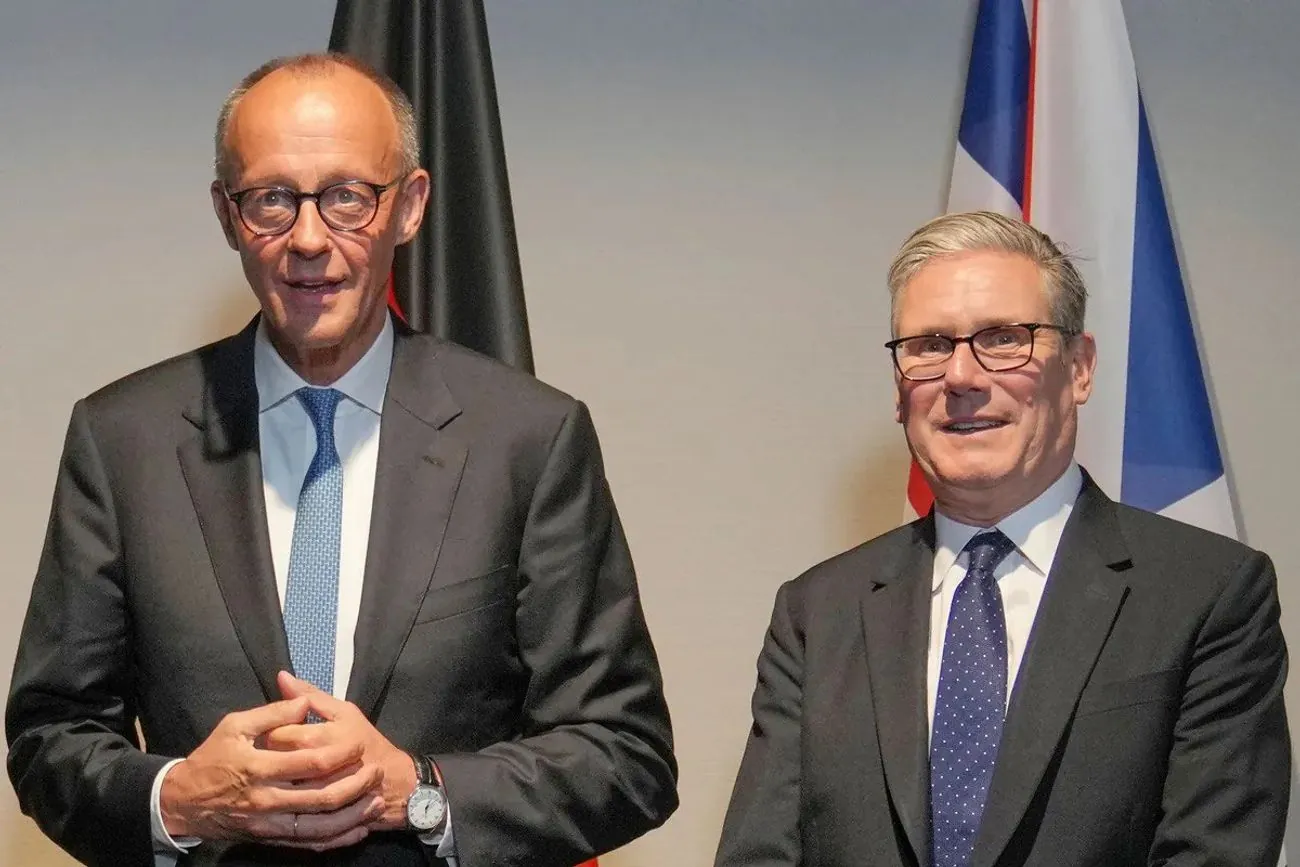British Prime Minister Keir Starmer and German Chancellor Friedrich Merz will sign an agreement in London on Thursday, July 17, which provides for a commitment to provide mutual assistance in the event of an armed attack. This is reported by UNN with reference to Bloomberg.
Details
As the publication writes, the prerequisites for signing the document were laid during Starmer’s meeting with Merz’s predecessor, Social Democrat Olaf Scholz, in August 2024 in Berlin. At that time, the head of the British government described the future agreement as “part of a broader reboot based on a new spirit of cooperation.”
Conservative leader Merz clearly expressed regret about Britain’s exit from the European Union and promised to join forces with Starmer to counter challenges such as Donald Trump’s trade pressure and the war in Ukraine.
– Bloomberg reports.
The German leader visits London a week after French President Emmanuel Macron’s visit – the first official visit of a European leader to Britain after Brexit, which signaled a warming of Anglo-French relations.
As part of the visit, Starmer and Merz are to sign the agreement during a ceremony at the Victoria and Albert Museum in London.
Mutual defense
According to a high-ranking German official, the mutual defense commitment is a response to both Russia’s growing aggressiveness and European allies’ increasing concerns about US commitment to NATO under President Trump.
At the same time, as the interlocutor clarified on condition of anonymity, the new agreement is not an alternative to the principle of collective defense enshrined in Article 5 of the North Atlantic Treaty.
Nuclear deterrence
It is noted that for Germany, the defense component is particularly important given that Great Britain, along with France, is one of the two nuclear powers in Europe. Although Germany does not possess its own nuclear weapons, it benefits from the protective “umbrella” that the US has deployed over the European continent.
According to German government officials, the nuclear issue is not directly mentioned in the text of the new agreement.
Missile project
In the agreement, Starmer and Merz will commit to jointly implement a program to create a new long-range missile system – the so-called Deep Precision Strike system – over the next decade.
The system is expected to have a range of over 2,000 kilometers and will contribute to strengthening the defense sector of both Great Britain and EU countries through “significant industrial investments.”
Consequences of Brexit
The agreement also provides for measures in the areas of trade, transport, and combating illegal migration, which is part of joint efforts to mitigate the negative consequences of Brexit.
In particular, according to the office of Prime Minister Starmer, Germany will undertake to amend its legislation on criminal liability for facilitating illegal migration to Great Britain by the end of this year.
In addition, during the visit, the leaders will discuss ongoing negotiations between Brussels and Washington on concluding a trade agreement.
According to German government sources, Merz calls for the earliest possible conclusion of a corresponding agreement between the EU and the US and considers Trump’s new agreement with Starmer a potential model.
Domestic political difficulties
According to Bloomberg, the leaders of the two countries may use the signing of the new agreement to divert attention from problems on the domestic political front.
Starmer has recently had to make a number of sharp changes in political course, which undermined the government’s hard-won reputation for fiscal discipline.
The international arena is clearly the most comfortable place for him right now. This agreement symbolizes his desire to restore European relations after Brexit, and also allows him to temporarily put aside domestic problems.
– noted Gemma Looms, a lecturer in comparative politics at Keele University in Britain.
Meanwhile, Merz faces increasing disunity within the ruling coalition: his conservative CDU/CSU bloc and the Social Democrats diverge on a whole range of issues – from social security reforms to judicial appointments – and are already drawing comparisons to the disputes that accompanied Scholz’s government.
Investment component
The office of Prime Minister Starmer also reported that in addition to the political part, Great Britain and Germany will announce new commercial investments totaling over £200 million ($268 million), which will create about 600 new jobs.
In particular, it is envisaged:
the first expansion of production outside Germany by STARK, a company specializing in defense technologies. The new facility is planned to be built in Swindon; an investment of £50 million in Great Britain by the German company Cognigy GmbH, which operates in the field of conversational artificial intelligence; Siemens Energy AG’s plans to create 200 new jobs, as well as recruit 100 new trainees and graduates, starting in the autumn of this year. Recall
Earlier, we reported that Great Britain and Germany are preparing to sign a large-scale mutual defense agreement that provides for mutual assistance in the event of strategic threats. The treaty will establish a binding link in security policy.
Trump surprised Merz with a change of position on aid to Ukraine – WSJ16.07.25, 10:41 • 3024 views
